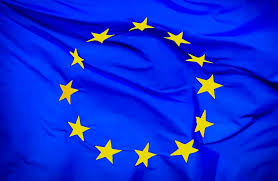Germany, Austria and Slovakia on Tuesday called for a special European summit next week on the migrant crisis, with German Chancellor Angela Merkel warning that "time is running out".
 Germany, Austria and Slovakia on Tuesday called for a special European summit next week on the migrant crisis, with German Chancellor Angela Merkel warning that "time is running out".
Germany, Austria and Slovakia on Tuesday called for a special European summit next week on the migrant crisis, with German Chancellor Angela Merkel warning that "time is running out".
Merkel said she and Austrian counterpart Werner Faymann had proposed the extraordinary meeting in a phone call with EU president Donald Tusk.
"It is a problem for the entire European Union and therefore we argued for a special EU summit to be held next week," she said at a joint press conference with Faymann, adding that "Donald Tusk will look into that".
"Time is running out, we cannot wait until mid-October," when the next regular EU summit is scheduled, she said.
The problem of admitting refugees could "only be resolved in a pan-European" way, stressed Merkel, whose country expects to take in up to one million asylum-seekers this year.
Merkel said the summit would not primarily deal with national quotas of refugees for EU countries -- an idea bitterly resisted by several eastern European members at a ministers' meeting on Monday.
The German chancellor also distanced herself from the idea of cutting EU funds to member states that refuse to accept their fair share of refugees, proposed by her interior minister, Thomas de Maiziere.
The summit, she said, should look especially at how the EU could help the refugees' countries of origin, how to better help Turkey in handling Syrian refugees, and how it could help EU frontline countries such as Greece and Italy manage the tide of arrivals.
Slovak Prime Minister Robert Fico echoed the call for an EU special summit to deal with the biggest migration crisis in Europe since World War II.
However, he made clear his main concern was to resist the idea of nationally binding quotas.
"We demand an extraordinary EU summit at the level of prime ministers and heads of state to discuss the issue of migration," Fico told reporters in the capital Bratislava.
"In a serious and sensitive matter such as dictating to a country how many people it must accept, when it does not have the opportunity to choose these people, it is definitely a summit that should decide," he added.
"I will go to this summit with a clear mandate -- not to agree with mandatory quotas under any circumstances.
"Mandatory quotas are irrational, wrong and they do not solve anything. We will never support mandatory quotas -- never, even if we remain isolated in this matter."